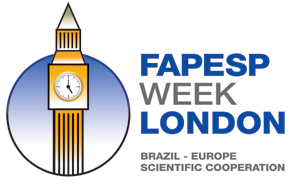Bringing researchers from Brazil and the United Kingdom together
The importance of strengthening relations between the two countries to develop jointly funded research is emphasized at the opening of FAPESP Week London

By Karina Toledo, in London
Agência FAPESP– The strengthening of ties between Brazilian and British researchers and the importance of science in overcoming the world’s great challenges were some of the topics discussed during the opening ceremony for FAPESP Week London, held September 25 - 27 in the UK capital.
Organized by FAPESP, with support from the British Council and the Royal Society, the symposium reports the findings of research conducted at various São Paulo institutions of higher education and research, and it is broadcast live online at www.fapesp.br/week2013/london.
The opening ceremony began with host Martyn Poliakoff, Foreign Secretary and Vice-President of the Royal Society, who highlighted the great advances seen in Brazilian science in recent years.
“I visited FAPESP and have been in Brazil three times recently. One can recognize that science is developing rapidly. We feel that there are real opportunities for developing ties between the UK and FAPESP,” he stated.
Next, the Ambassador of Brazil to the United Kingdom in London, Roberto Jaguaribe, pointed to the strengthening of bilateral relations between the two countries’ academic and technology institutions over the past five years, and said that Brazil has much to learn from the United Kingdom.
“The United Kingdom has prestigious institutions and appropriate policies for disseminating science and technology. There has been an increase in funds allocated to science and technology in Brazil in recent years, and we are filling a void between Brazil’s scientific production and planning. But we still have not been successful in the next step, which is to introduce technology and productivity to various sectors of our economy,” he said.
Jaguaribe emphasized Brazil’s scientific tradition in agriculture, which has been strong since the 19th century, and went on to say that the state of Sao Paulo is the most advanced in terms of industrial output and technological research. “And FAPESP is one of Brazil’s most important institutions in this regard. It has a tradition dating back 50 years and has benefited most recently since 2007 under the leadership of Professor Celso Lafer, during a period that has seen great progress,” he concluded.
He was followed by FAPESP President, Celso Lafer, who mentioned the institution’s concern about promoting the internationalization of research in São Paulo. “We know that it is important to promote the opportunity for researchers from São Paulo to interact with researchers from other countries. That is why, in addition to agreements with universities and various research councils of the United Kingdom, the idea behind this workshop was to establish networks to create mutual understanding about the importance of science and bring together people who share the same values and world view,” he said.
Paul Boyle, Chief Executive of the Economic and Social Research Council (ESRC) of the United Kingdom stated that the seven Research Councils of the UK consider Brazil a key partner.
“I was a member of the delegation that recently visited Brazil and was impressed with the strength and quality of the research and innovation going on there. We (British) consider ourselves strong in science, but we have a lot to learn from each other, and our partnership up to now has been very smooth. There is no doubt that Brazil is a country with real opportunities for collaboration,” he said.
Boyle emphasized the opportunities that already exist in the field of biological sciences as well as the best practices related to holding large events such as the Olympics and the World Cup in big cities.
Finally, the Chief Executive of the British Council, Martin Davidson, emphasized that science is currently seen as a key tool for addressing the world’s greatest challenges.
He concluded by saying, “Science is a team sport and I think establishing good scientific teams is critical. I’m here to underscore the British Council’s commitment towards working with FAPESP to strengthen international collaboration.”
Before the opening ceremony, FAPESP directors along with some of the Brazilian and British scientists involved in FAPESP Week London took part in a press conference.
In addition to Lafer, in attendance was the Foundation’s scientific director, Carlos Henrique de Brito Cruz, who mentioned the signing of agreements between FAPESP and the Imperial College, Manchester University, Cambridge University and BG, along with calls for proposals with King’s College London and with the University of Edinburgh.
(foto:Gustavo Camilo)









